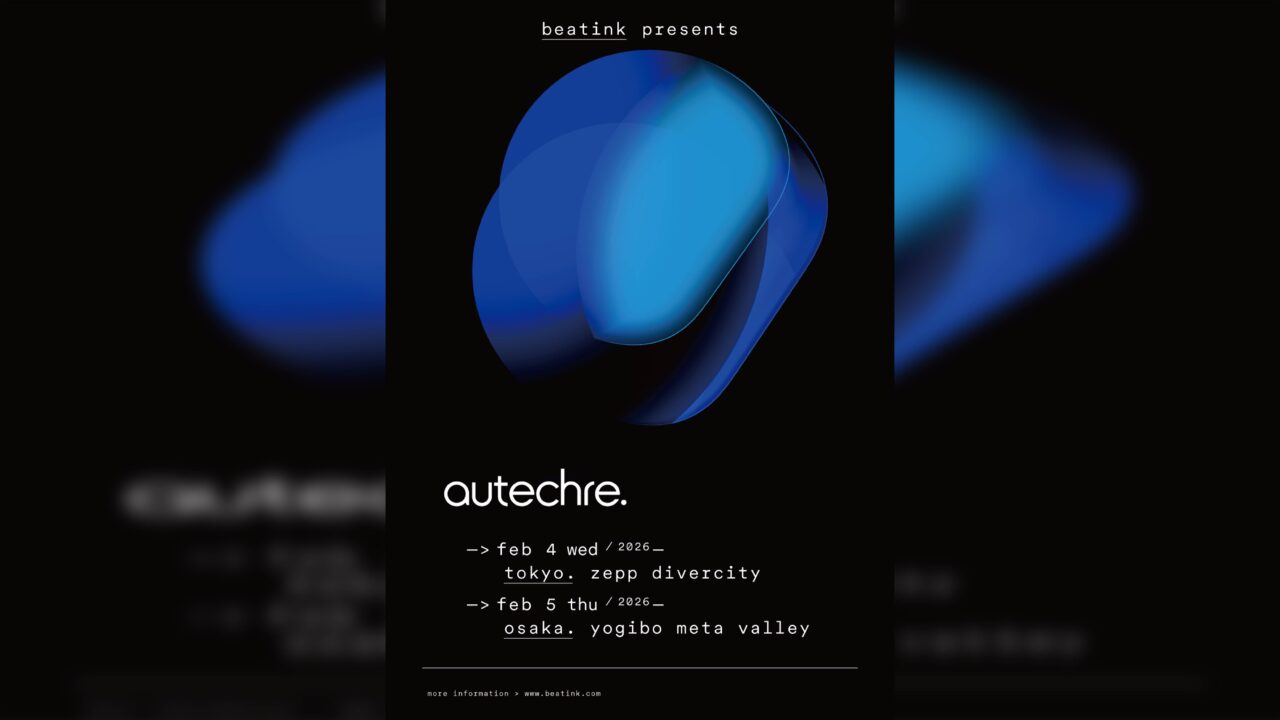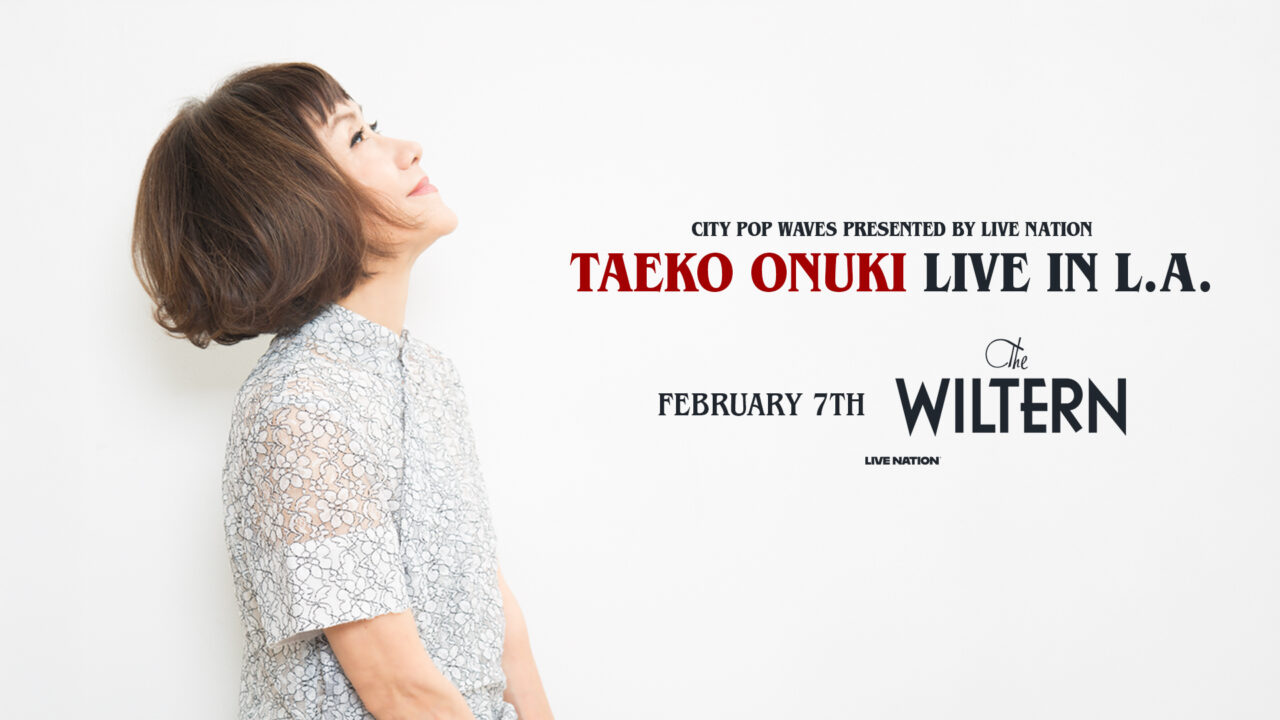Satoko Shibata has released her seventh album titled “Your Favorite Things.” The dance music and R&B inclinations that surfaced in her previous album “Bochibochi Ginga” have further blossomed vividly through collaborative production with Takuro Okada, who performs with her live. This album marks a new turning point in Shibata’s career. Additionally, the delicate sound production has been further refined, achieving an unprecedented level of completeness as an album.
Furthermore, her singing now harbors nuances that were previously unheard of, and the subtleties of the words carried by her voice have gained even sharper clarity, indicating that she has entered a new “zone” as a singer-songwriter.
Satoko Shibata’s talent has long been highly regarded, and one who has frequently collaborated with her since their days in the band ShyamCats is Tomoyuki Natsume. He, too, made a significant shift towards dance music with his debut album “Daikichi” under his solo project Summer Eye, surprising fans. Like Shibata, he is also known for his unique lyrical compositions, which have garnered high praise.
To commemorate the release of “Your Favorite Things,” a conversation between the two (which seemed unlikely until now) was realized. From their initial encounter to discussions about each other’s works, singing, and lyrics, their conversation delved broadly and deeply into various topics. We bring you the full details of their exchange.
INDEX
Natsume’s Acclaim for Shibata’s Lyricism

Singer-songwriter/poet. In 2010, she began her career after being encouraged by a college mentor. In 2012, she made her album debut with “Shibata Satoko Island.” In 2022, she released her sixth original album, “Bocchibochi Ginga.” In 2016, she published her first poetry collection, “Sabaku.” She has contributed to various publications including poetry, essays, and children’s stories. In 2023, she published an essay collection titled “Kiregire no Diary,” compiling her serialized work in the literary magazine “Bungakukai” over seven years. She has gained attention as a poet as well. On February 28, 2024, she released her seventh album, “Your Favorite Things.”

Debuted in 2009 as the vocalist and guitarist for the band Sham Cats. Despite garnering support from many young people through their exploration of Japanese rock and independent activities, the band disbanded in 2020. In December 2021, he made his solo debut under the name Summer Eye with the release of his first single “Life.” In 2022, he released a split 7-inch with Taiwan’s DSPS Amy and his second single, “Proposal.” In February 2023, he gained attention with the release of his third single “Failure” and a remix by XTAL. On March 21, he released his first album “Daikichi.” The lead track “White Whale” became a drama theme song. Engaged in collage production, songwriting, and DJing among other endeavors, he contributes to the world’s diversity through his unrestricted artistic expression.
-How did you two get to know each other?
Shibata: Probably around 2011 before I made my debut. I think we first met when I went to see Siamese Cats perform at “OPPA-LA” in Enoshima.
Natsume: Oh, that’s right.
Shibata: At that time, I went to see the show with a mutual friend. I remember thinking, “What a scary guy! (Laughs.) At that time, Natsume was already a star for us. Not only the music, but also the lyrics, the way the band was, everything seemed to shine.
Natsume: No, no, no (laughs). After Mr. Shibata made his debut, we often played together at events. We played with each other.
Shibata: Yes, we did. The turnout was bad and the organizer said, “We can’t pay you the promised fee.” I was still a novice, so I said, “Oh, that’s OK! But Natsume responded firmly. I remember Natsume was very firm in his response.
Natsume: That was about 10 years ago (laughs). We’ve never gone out drinking together, but whenever we meet, we always talk about TWICE or K-POP (laughs).
Shibata: Yes, yes (laughs). But this is the first time for us to talk at length in an interview like this, so it’s fresh.

-I remember you analyzing the lyrics of Shibata’s song “I got married” at a talk event titled “10 Years of Songs and Words by Tomoyuki Natsume of Siamese Cats” in 2019. It was also published in CINRA at the time, and was very interesting because it was a sharp commentary from a unique point of view. Did you read that article as well?
Shibata: Of course I read it.
Natsume: I am sorry for analyzing it (laughs). I remember praising it to the hilt.
Shibata: I was really happy. It was refreshing to have a musician read my lyrics in such a way. I was very impressed by the expression, “You’re fast on the run. The point that there is a third party’s point of view in this song is exactly right, and I thought it was as I expected. On the other hand, there were also some interpretations that I had never thought of from this point of view, which was very interesting.
Natsume: Ever since I first heard your song, I have had the impression that your lyrics do not go in a straight line, but rather have various points of view running side by side or branching out, which I feel is very unique. It gives me the impression that the lyrics do not proceed in a straight line, but rather, they run parallel to and branch off from various points of view, and I feel that this is very unique. I can’t do that myself, so I think it’s even more impressive.

-What did you think of Natsume’s lyrics?
Shibata: As I said before, he was a star for me from the very beginning, so my initial feeling of “wow, that’s amazing” came first (laughs). (laughs) Not only Natsume’s words, but basically, I am not at all capable of calmly reading lyrics written by others. I just say, “Wow, that’s great!” or “That’s wonderful! (laughs) Conversely, I don’t really think, “I want to write like this person! I just feel like I am writing my own words.
INDEX
Natsume’s Response to “Your Favorite Things”: “She Masterfully Embraces the Essence of Satoko Shibata”
-Natsume, what did you think of Shibata’s new album “Your Favorite Things”?
Natsume: It was really interesting. I listened to it three times on different days, and it was interesting each time. The first time I listened to it, I thought, “Oh, you’ve completely mastered the existence of ‘Satoko Shibata. She seems to be having a lot of fun.
Shibata: I’m glad that you do indeed have that feeling. I think Takuro Okada-san’s coming in to produce the sound for this album and our working together with gusto was a big part of the production. This is the first time I’ve had so much fun making this album.
Natsume: I feel a great sense of freedom.
Shibata: I made the album without thinking, “This kind of music wouldn’t suit me, so I’m not going to do it. For example, I no longer think of myself as someone who likes TWICE and my music separately.
Natsume: There are many hooks, but I also freed myself from the idea of “chubi” in Japanese pop songs, and there are many parts that should be called “flow” rather than “song.
Overall, the rhythm and flow are well intertwined, and the whole album is like a picture scroll, like a painting. The lyrics are also enjoyable to listen to by ear, not by eye. It’s like a flash of a picture coming to mind.

Shibata: For the first time, I decided to record the vocals myself, and I think that was a big part of it. In terms of rhythm and voice, I felt that the words were floating around in the previous album. I wondered how I could resolve that. This time, I went into the recording with a strong desire to make the words “sound. So I am very happy with the feedback.
-I heard that your vocal technique has also changed considerably.
Shibata: In the past few years, I had forgotten that I have a small voice. Especially since I started working with a band, I have been thinking that I have to use my voice and get it out from my stomach. My personality also became more and more extroverted along with it (laughs).
(Laughs) But after the last album, I began to think that maybe I was forcing my voice too much. My personality has never been a positive one (laughs).
(laughs) – Your vocal technique has changed a lot since then, hasn’t it, Natsume?
Natsume: Going back to the Shamcats’ “Take Care” mini-album (2015), I started to think consciously about vocalization, and I think it was a big factor in my decision to sing more carefully. Then, when I started my solo project (Summer Eye), I decided once again that I would not be so tense anymore.
I had reached a certain age, and I thought, “I should stop singing with a bang if I have to. When I was thinking about that, I was listening to a lot of bossa nova and Brazilian music, and I started to think that it would be great if I could sing like that, too, because they are so wonderful even though they are all singing in a whisper.
Another big thing was that I wanted to do music that I could continue for the rest of my life. I also thought that I wanted to do music that I could keep doing for the rest of my life. I also thought that it would be a little hard for me to keep disciplining myself and training and working hard to put my voice to the test.
Shibata: Looking back on my own case, I think that such a change in vocal technique is more seamless than a sudden and drastic change. I also have the sense that things have gradually changed as I think about it in my daily life.
Natsume: That’s right.
INDEX
Shibata’s Response to Summer Eye’s “Daikichi”: “I like the feeling it doesn’t make things too straightforward”
-How did you feel when you listened to Summer Eye’s album?
Shibata: It was very good! At first I listened to it while walking around with earphones, but then I thought, “Oh, this is the kind of music I should listen to loudly on speakers,” so I did so again.
I thought, “Natsume-kun, you make club music!” and more than anything, I thought it was stylish, and I was impressed by your technique as a musician. Of course, it is not only about technique, but also the overall quality of the music, arrangement, and lyrics.
Natsume: That makes me happy.
Shibata: I don’t want to mention other artists’ names, but I dare say that the lyrics have a quality similar to Sly (Sly & the Family Stone).
Natsume: Oh, I like Sly’s lyrics, too.
Shibata: The lyrics overlap with the atmosphere of the current era, and I feel the attitude of “I have to do my best to survive,” but they also depict sadness and love, which I think is great. I also feel that way when I listen to Sly. It also captures the feeling of “after all, people can’t just do their best …….” I think that’s what Sly is about.
It’s also nice that the song doesn’t make you grasp things in a straightforward manner. I feel that when I talk to Natsume.

Natsume: That’s probably just a quirk. Actually, I always try to choose the easiest way to express myself, but I understand that I end up giving that impression.
For a while I had some trouble with that, and I felt that I wanted to communicate more straightforwardly, but recently I’ve come to think that, well, that’s part of my personality, and that I should just throw a straight ball in my own way.
Shibata: Well, when I hear that, the lyrics sound even more interesting.
Natsume: But from my point of view, I also feel a great strength in you, Mr. Shibata. When you are doing this kind of work and spending a lazy day with no plans, you may feel uneasy and wonder if you are doing the right thing. I asked Mr. Shibata before, “Don’t you ever feel that way? He immediately answered, “No, I don’t.” Shibata: What kind of a dangerous guy are you?

Shibata: You sound like a dangerous guy (laughs). But I am feeling a certain amount of anxiety now. I started a savings NISA the other day, too.
Natsume: (laughs).
Shibata: But even though I am vaguely anxious about the future, I am trying to overcome my worries about my house, family, and daily life by writing songs, which I think is pretty bad.
Music has become like a tool to get over things in my life. So, if music were to disappear, it would be a really bad thing. It was the same with Corona, and our dependence on it is growing rapidly.
Natsume: That is exactly how I feel about the new album. I have the impression that making the album itself has become a prescription.
Shibata: So now all I can think of is, “Music, please don’t abandon me. If music were to be taken away from me, it might be more painful than if my life were to end. In the past, I would have taken the relationship more lightly.
Natsume: There are times when the rate of synchronization with the music I am making increases abnormally. In that sense, this album is not just you “getting on with ‘Satoko Shibata,'” as I said earlier, but rather “becoming one with the songs.

























